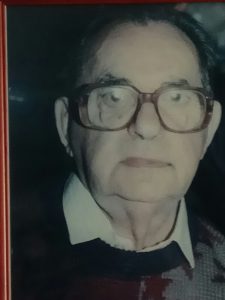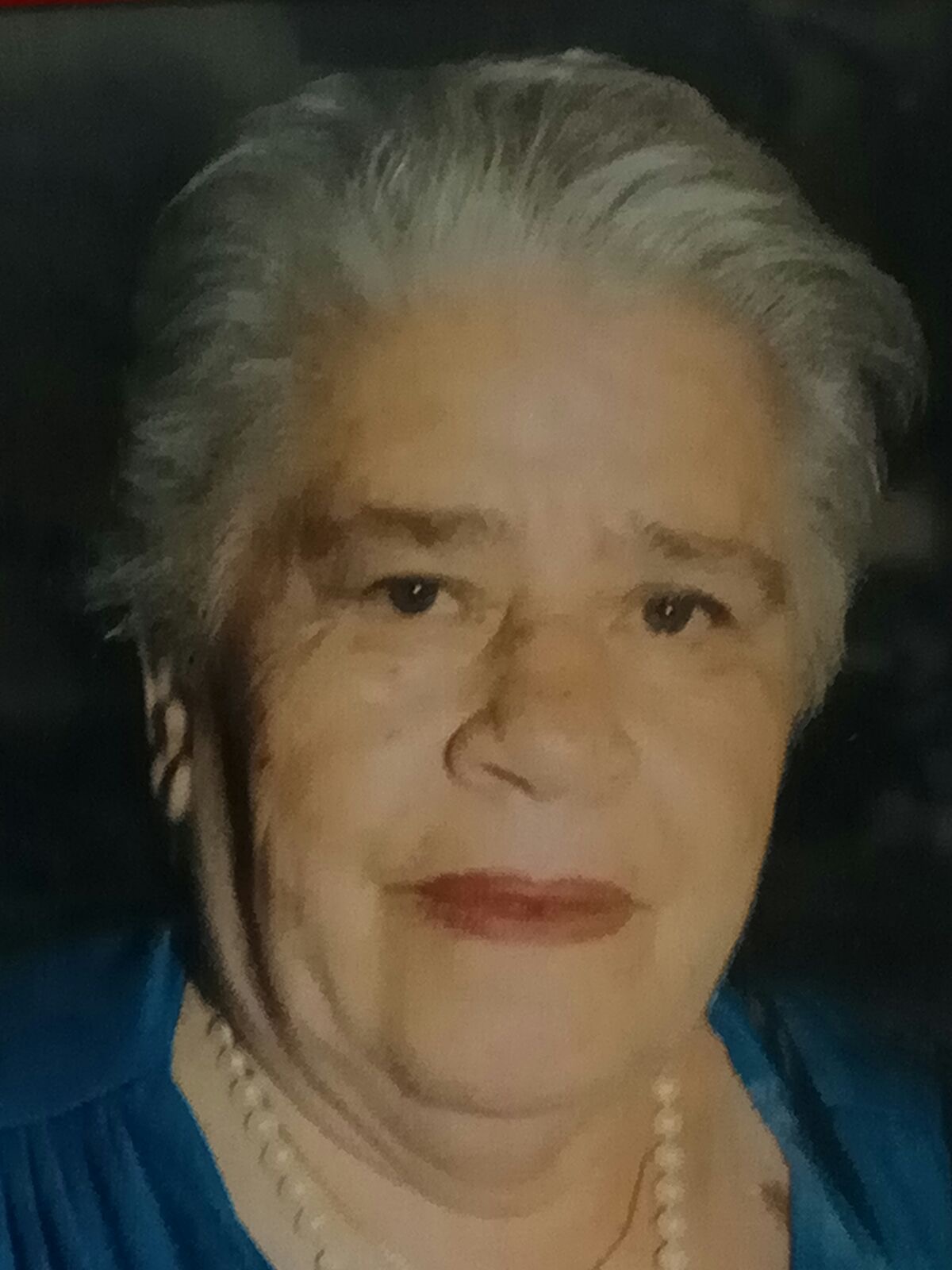- Local Survivor registry
- ZVI WOLF-WAGNER
- Local Survivor registry
- ZVI WOLF-WAGNER
Survivor Profile

ZVI
WOLF-WAGNER
(1918 -2001)
PRE-WAR NAME:
ZVI HERSCH WOLF-WAGNER
ZVI HERSCH WOLF-WAGNER
PLACE OF BIRTH:
RABBA RUSKA, POLAND
RABBA RUSKA, POLAND
DATE OF BIRTH:
JANUARY 5, 1918
JANUARY 5, 1918
LOCATION(s) BEFORE THE WAR:
RABBA RUSKA, POLAND
RABBA RUSKA, POLAND
LOCATION(s) DURING THE WAR:
SOVIET ARMY, LENINGRAD, SIBERIA
SOVIET ARMY, LENINGRAD, SIBERIA
STATUS:
SURVIVOR, REFUGEE
SURVIVOR, REFUGEE
RELATED PERSON(S):
ITA WOLF WAGNER - Spouse (Deceased),
MISCHA WAGNER - Son,
YEHUDAH WAGNER - Son,
MOTI WAGNER - Son,
AVIV WAGNER - Grandson
-
BIOGRAPHY By Nancy Gorrell
BIOGRAPHY OF ZVI HERSCH WOLF-WAGNER
Zvi grew up in Rabba Ruska, Poland which exists now under a different name according to his grandson, Aviv Wagner. Zvi grew up in a family of 12—six siblings and six stepbrothers and sisters. His mother, Chaya remarried. He was a shoemaker by trade. Rabba Ruska was large town with a significant Jewish community. Zvi did not talk about his Holocaust or wartime experiences with his son or his family. According to Aviv, “He was not talking. He had trauma from a bombing grenade.” But one fact we know: When the Nazi’s invaded in September, 1939, Zvi fled from Poland to Russia where he was recruited into the Soviet Army. He met his future spouse, Ita, during the war, in a hospital in Leningrad where he was recuperating. She was the nurse in rehab who took care of him. They married sometime after Zvi got out of the hospital. After his injury, he was no longer in the army. They lived together in Siberia. Their first son was born on November 28, 1946 in Siberia in the Ural Mountains. Life was hard. They lived on a small farm in a house with no bathroom or electricity. They had three boys: Aviv’s father was the oldest: Mischa (Michael), Yehudah, and Moti. All Zvi’s sons were born in Siberia.
In either 1953 or 1954, Zvi and his family “escaped” from the Soviet Union to Israel. According to Aviv, “Nobody could leave Russia at that time. My grandfather had a Polish passport, and that’s how he escaped, crossing Austria. All five escaped together on the Polish passports.” Then they travelled through Europe to Israel. They took a boat from Greece. A Jewish organization helped them. Then they settled on the kibbutz, Ein Carmel near the Mediterrean Sea. They lived there for three or four years, and then they left. In Israel they experienced anti-Russian feelings. The family first lived in Ein Carmel, a kibbutz near the Mediterrean Sea. But they had a hard time fitting into Israeli society. According to Aviv, “In Russia, they were called ‘Jews’ (in disparagement). In Israel, they were called ‘Russian” (in disparagement). They went for one year to live in Brazil where Zvi had a sister. Zvi tried to start a business but it didn’t work out, so the family came back to Israel and settled in Kiryat Yam where Aviv and his younger sister grew up with them. Zvi found a good job building the power station in Haifa. It was one of the best companies in Israel and all the family worked there, but it “destroyed my grandfather’s health because he worked there day and night.” Zvi retired from the power company when he was 60 years old.
Editor’s Note:
Refer to grandson, Aviv Wagner, in Voices of the Descendants.
-
SURVIVOR INTERvIEW WITH AVIV WAGNER, GRANDSON
INTERVIEW WITH AVIV WAGNER, GRANDSON
SURVIVOR: ZVI HERSCH WOLF-WAGNER, GRANDFATHER
DATE: October 12, 2017
LOCATION: SSBJCC, Bridgewater, New Jersey
INTERVIEWER: NANCY GORRELL
Q: Describe your family background.
My grandfather grew up in Rabba Ruska, Poland which does not exist anymore. Now it’s under a different name. I know he grew up with six siblings and six stepbrothers and sisters. It was a family of 12. His mother, Chaya remarried. I think he worked with shoes; he was a shoemaker. Rabba Ruska was big town but there was also big Jewish community it.Q Did you know your grandfather?
Yes, very well. I lived in the same house with him in a suburb of Haifa called Kiryat Yam.Q: Did he talk to you at all about his Holocaust experiences?
My grandfather was not talking. He had trauma from a bombing grenade. Every once in a while he would start singing out of nowhere in Polish and yiddish songs from the war.Q: What about your grandmother?
My grandmother, Ita used to limit me with the food. She used to count it, but you had to eat everything. They fed me a lot. My grandparents moved from Russia to Ein Carmel kibbutz—it was just beautiful, what a kibbutz, near the Mediterranean Sea. It was not easy to get into Israeli society. They had a hard time to fit in.Q: How and when did your grandparents emigrate to Israel?
They emigrated in 1953 or 1954 from Russia. Nobody could leave Russia at that time. My grandfather had a Polish passport and that’s how he escaped crossing Austria.Q: Did your grandfather talk about the war at all?
No. He didn’t talk at all. He was very quiet.Q: What do you think or know happened to him during the war?
He ran from Poland to Russia. He was recruited into Soviet Army. He got an injury and was in a hospital in the Ukraine. There, he met Eta, my grandmother, in the hospital rehab and she was the nurse that took care of him. She was very pretty. She had blue eyes.Q Did they spend the war together?
Yes. He was out of the army after his injury.Q: When and where was your father born?
He was born on November 28, 1946 in Siberia in the Ural Mountains.Q: What was post-war life like for your grandfather and father in Soviet Russia.
They lived in this town in Siberia after the war. My father told me that they lived in a house but there was no bathroom or electricity. They lived on a small farm. My father went to school there.Q: Did they experience anti-Semitism?
He experienced a lot of anti-Semitism. They even experienced it in Israel when they emigrated. In Israel, they were called “Russian.” In Russia, they were called “Jews.” I know that my grandfather was very tough with his children with the discipline. The belt was the education. There were limits on everything. The parents were always acting like they were still in the war.Q: When did your grandfather’s family emigrate from Russia to Israel?
My grandfather went in 1954 with his whole family. All five escaped together on the Polish passports.Q: When did your grandparents have more children?
They had three boys: my father was the oldest: Mischa (Michael), Yedudah, and Moti. All were born in Siberia.Q: How did they settle in Israel?
They travelled through Europe to Israel. They took a boat from Greece; somebody helped them; some Jewish organization. Then they settled on the kibbutz, Ein Carmel. They lived there for three or four years, and then they left.Q: Any reason why they left the Kibbutz?
They didn’t really fit into the Kibbutz, and then my grandfather’s sister living in Brazil invited them to come there. They went but they only lived there one year. My grandfather’s business didn’t work out so well, and so they came back to Israel and settled in Kiryat Yam where I grew up with them.Q: What was life like in Kiryat Yam?
My grandfater found a good job building the power station in Haifa. They recruited my grandfather. His health was destroyed because he worked day and night, but this company is the best in Israel. All my family worked there. The whole family got benefits.Q: When did he retire?
When he was 60. He was retired when he took care of me. Of his other sons, one became a school principal in Israel, and one became an HR in the company. It was a government power company. Even his grandson, Aviv Wagner, myself, worked there. Twice! Before I went into the military. -
Sources and Credits:
Credits:
SSBJCC Survivor Registry Interview, October 12, 2017, Interviewer: Nancy Gorrell; Biography by Nancy Gorrell; Digital historic and family photographs donated by Aviv Wagner.




